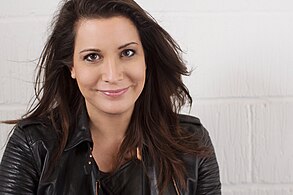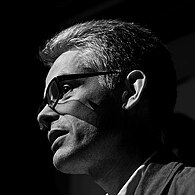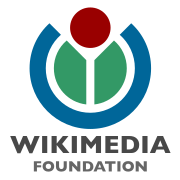ویکی مینیا

تین دن میں، 200 مکالمات، کے ساتھ اختتام پذیر ہوئی۔
ایسی دنیا کا تصور کریں، جس میں ہر ایک فرد کو مفت علم تک رسائی حاصل ہو۔ #wikimania2014
یوٹیوب پر ویڈیو دیکھیں
کومنز پر ویڈیو دیکھیں (جلد آنی والی ہے)
لائیو سٹریم پر ویڈیو دیکھیں
جائزہ لیں منصوبہ!
دیکھیں وہان کون تھے: دنیا والو!
ویکی مینیا کیا ہے؟
ویکی مینیا 2،000 سے زاہد افراد کی کانفرنس تھی جس میں میلہ، ملاقات، تربیبی ورک شاپ، مراسم اور جشن اگست 2014ء میں پانچ دنوں کے لیے ہوا۔ پہلے اور بعد کے منفرد واقعات۔ یہ ویکیپیڈیا تحریک کا سالانہ سرکاری ایونٹ ہے، جہاں آپ ان تمام منصوبوں سے آگاہی حاصل کریں گے جو صارفین ویکی سے کھلے مواد کے لیے بنا رئے ہیں، اس کے ساتھ ساتھ ان ویکی صارفین سے ملاقات کریں، جنہوں نے ویکیپیڈیا پر بہت زیادہ کام کیا ہے!
کانفرنس برطانیہ کے شہر لندن میں باربیکان سينٹر میں منعقد ہوگی۔ خواہ آپ ویکیپیڈیا کے ماہر ہیں، سرگرم صارف ہیں یا نو آموز، آپ کو شرکت کی دعوت ہے۔
ویکی شماریات
سالانہ ویکی منصوبوں کی شماریات کی تفصیل
Wikipedia is a household name — in fact, it’s now one of the five most popular websites in the world, clocking over 21 billion hits every month. With over 110m pages across 287 languages, and a dozen sister projects including dictionaries, newspapers, multimedia repositories and travelguides, it's come a long way since its founding in 2001; the community has grown, the technology has developed, and the organisation has matured. However, there are still sweeping changes to come. more…
-
جمی ویلز
ویکیپیڈیا کے شریک بانی -
للہ ٹریتیکوو
ویکیپیڈیا فاونڈیشن کی نگران -
Brandon Harris
Senior Designer at the Wikimedia Foundation -
Erik Möller
VP of Engineering at the Wikimedia Foundation -
Luis Villa
Deputy General Counsel at the Wikimedia Foundation
سماجی روابط
کس طرح ہم سماجی روابط والی انٹرنیٹ برادری کی صلاحیتوں کا استعمال کر سکتے ہیں؟
Once upon a time 'machines' were programmed by programmers and used by users. The success of the Web has changed this relationship: we now see configurations of people interacting with content and with each other, blurring the line between computations performed by machine logic and algorithms, and those that result from input by humans, arising from their own psychological processes and life experience. Rather than drawing a line through such Web-based systems to separate the human and digital parts (as computer science has traditionally done), we can now draw a line around them and treat each such compound as a 'social machine', a machine in which the two aspects are seamlessly interwoven.[1] Of course Wikipedia is one of these, but what others? How can such systems be designed from scratch, and to what ends? مزید
-
Sir Nigel Shadbolt
Professor of Artificial Intelligence, Chairman Open Data Institute -
Yaneer Bar-Yam
President of The New England Complex Systems Institute -
Raph Koster
Virtual Community Designer -
Marc-André Pelletier
Operations Engineer (Tool Labs) at the Wikimedia Foundation -
Salil Shetty
Secretary General Amnesty International
تعلیم کا مستقبل
اب ویکی پیڈیا کیا کرے گا جب سب نے کام سیکھ لیا، کیا سکھانے کے لیے کچھ بچا ہے؟
بہت سے استاتذہ برہمی کا ہظہار کرتے ہیں! ویکیپیڈیا پرائمری سے لے کے جامعات کے لاکھوں و لاکھ طلباء و طالبات تک کا پہلا ذریعہ علم بنا گيا ہے۔ Its sheer convenience is challenging standard pedagogical approaches that implicitly assume information is scarce and difficult to duplicate. What if teachers asked students to contribute to Wikipedia instead? مزید
-
David White
Head of Technology Enhanced Learning at the University of the Arts London -
Clare Sutcliffe
CEO of Code Club -
Emma Mulqueeny
Founder of Rewired State -
Diana Strassmann
Chair of The Board of The Wiki Education Foundation
معلومات کو عام کرنا
کیا ہم ایسا کر سکتے ہیں کہ تمام انسان کے علم کو مشین ریڈایبل کر دیں؟
Wikidata is a new project of the Wikimedia Foundation: a free, collaborative, multilingual, secondary database, collecting structured data to provide support for Wikipedia, Wikimedia Commons, the other Wikimedia projects, and well beyond that. This may become one of the best open data repositories on Earth — what can we do with it? مزید
-
Rufus Pollock
Co-Founder of the Open Knowledge Foundation -
Lydia Pintscher
Wikidata Product Manager -
Viktor Mayer-Schönberger
Professor at the Oxford Internet Institute -
Chris Taggart
CEO of OpenCorporates -
Markus Krötzsch
Research Group Leader at TU Dresden -
Richard Stirling
International Director at the Open Data Institute
اوپن سکالر شپ
انسانی علم اگر تمام لوگوں کے لیے عام ہو تو کیا ہو گا؟
In 2013 alone over 500,000 pieces of scholarly research were made open access, across all disciplines — an unprecedented number. These are all citable in Wikipedia, meaning they can be integrated into the encyclopaedia, contextualised and made discoverable by anyone in the world with an internet connection. This level of accessibility of cutting edge research has never existed before in history, and the possible outcome of empowering citizen scientists and opening up academia in this way is beyond reckoning. مزید
-
Jack Andraka
Citizen Scientist & Inventor -
Elizabeth Marincola
CEO of The Public Library of Science -
Peter Murray-Rust
Shuttleworth Fellow in Machine Readable Open Access
جمہوری ذرائع ابلاغ
اس کے لیے تمام ذرائع ابلاغ کو تجارتی طور پر کار فرما ہونا ضروری ہے؟
Media performs an essential political, social, economic, and cultural function in modern democracies. In such societies, media are the principal source of political information and access to public debate, and the key to an informed, participating, self-governing citizenry. Democracy requires a media system that provides people with a wide range of opinion and analysis and debate on important issues, reflects the diversity of citizens, and promotes public accountability of the powers-that-be and the powers-that-want-to-be. There is a growing sense that the growth of the Internet has not paid the democratic dividends that it could. more…
-
Heather Ford
Co-founder of Creative Commons South Africa" -
دانی اوبرین
الیکٹرانک فرنٹیئر فاؤنڈیشن کے بین الاقوامی ڈائریکٹر۔ -
Dan Gillmor
Author of "Mediactive" -
Bill Thompson
BBC Archives -
Carl Miller
Research Director Centre for the Analysis of Social Media at Demos -
Ryan Merkley
CEO at Creative Commons
تعاون کرنے والے
ساتھی
ذرائع ابلاغ کے ساتھی
If you are interested in sponsoring next year's Wikimania, please contact wikimania-sponsorship@wikimedia.org
صارفین

Wikimania was made possible by the 1000s of hours of work by 100s of volunteers
References
- ↑ Towards a classification framework for social machines Nigel Shadbolt, Daniel Alexander Smith, Elena Simperl, Max Van Kleek, Yang Yang, Wendy Hall, Web and Internet Science Group, University of Southampton, UK












































